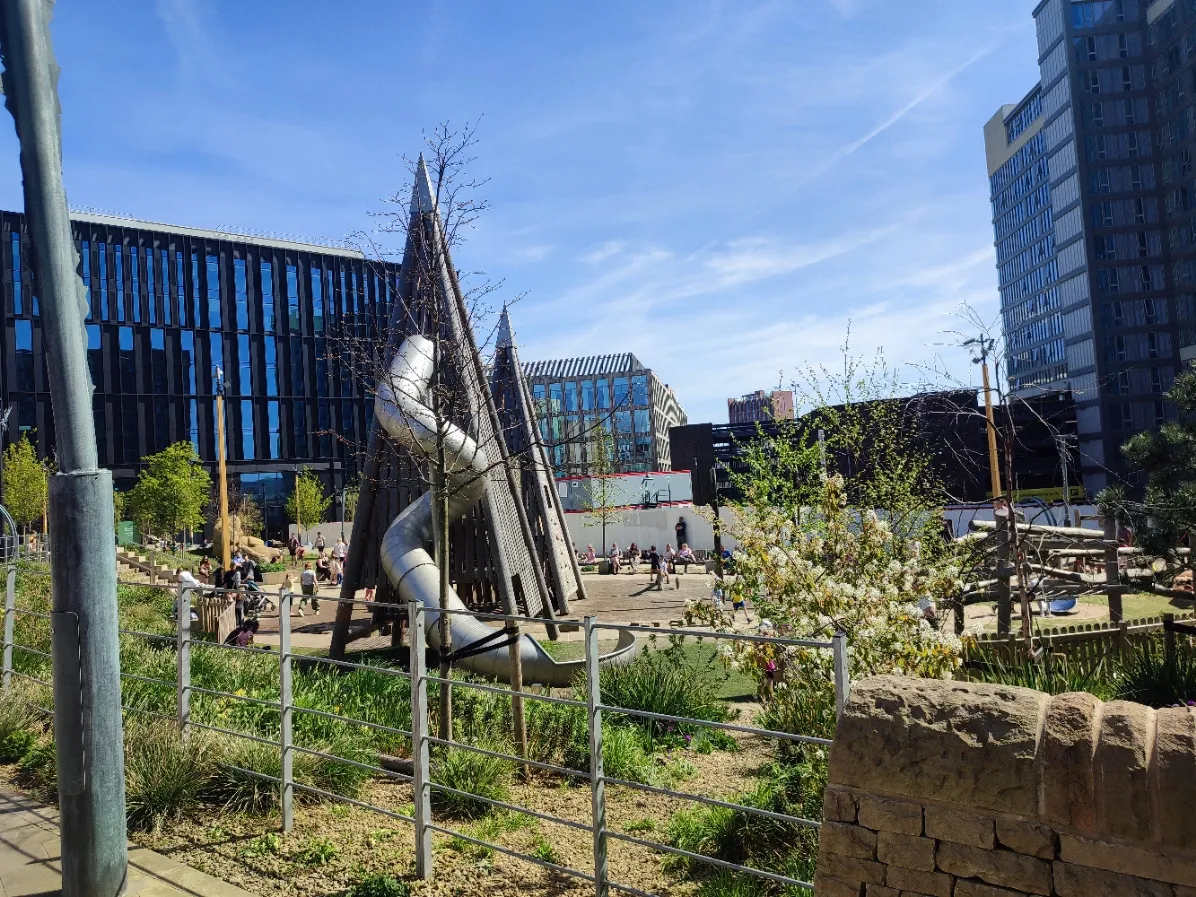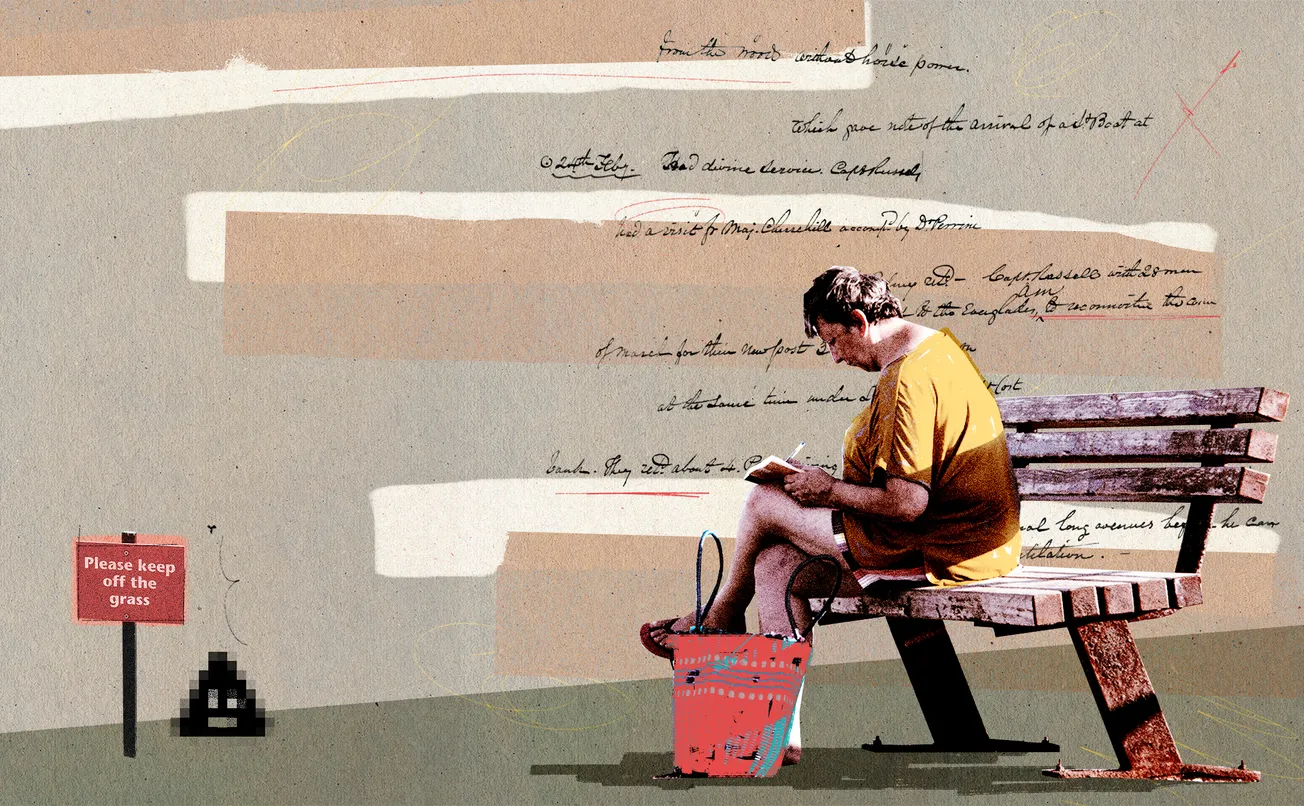Good afternoon readers — and welcome to our first Monday briefing of 2022!
Today we have an in-depth look at the latest Covid data as the city feels the full force of the Omicron wave. We also feature an interesting piece about Sheffield’s first professional female boxer and recommend a rare visit by the Russian State Ballet of Siberia.
We got a great reaction (and 10 new members) after we sent out our weekend read about anti-vaccine protests in Sheffield. You can still access that piece here.
Reasoned arguments jostle with mistrust and misinformation in the minds of those I speak to.
— The Tribune (@sheffieldtrib) 10:38 AM ∙ Jan 10, 2022
I ask one woman why the vaccination programme is happening.
“I don’t know, that’s the sinister thing,” she replies. “It’s either for the money or going digital.”
An extract from that vaccine piece is below:
In most of the conversations I have, these seemingly reasonable arguments jostle with mistrust and misinformation in the minds of those I speak to. I ask one woman who says she works in mental health in Sheffield that if the jab is at best unnecessary or at worst dangerous, why are the government scientists and NHS bosses so keen on it. “I don’t know that’s the sinister thing,” she replies. “It’s either for the money or going digital.”
Last week we sent out two stories to our now 518 paying members: one about Kim Phillips MBE and another about the Grey to Green project. This week we’ll be sending out two more including one about little-known Sheffield artist Kenneth Steel. To get all of our journalism subscribe using the button below. It costs less than £1.40 a week if you pay for the year.
Praise for The Tribune
In their annual report on the state of the industry, the influential Reuters Institute for the Study of Journalism at the University of Oxford are predicting many more local newsletters like The Tribune will appear this year. In its story about the report, industry website Hold the Front Page says:
Predicting growth in the independent news sector, the report published today cited examples such as the Manchester Mill and its Sheffield Tribune sister title as a new business model that could be followed elsewhere.
This week’s weather
Our weather forecast comes from dedicated Sheffield weather service Steel City Skies, who say high pressure will begin to exert its influence across the UK this week, but that there are a “few early weather fronts” to get through first.
Monday ☁ largely cloudy with the odd spot of rain courtesy of a warm front heading east. A cold front behind brings a more defined rain threat overnight. Highs of 8°C.
Tuesday ⛅ brightening up considerably through the day as the post-frontal cloud clears. Dry and sunny thereafter with lighter breezes. Highs of 8°C.
Wednesday 🌤🌫 after a chilly start, with fog persistent to clear in places, the day plays out dry and largely sunny with light westerly breezes under our high pressure. Highs of 8°C, but a few degrees colder under the fog.
Thursday 🌤🌫 unlikely to change much with our high sticking around, its centre further south. Sunshine once any fog patches clear. Highs of 8°C once more.
Friday ⛅🌫 staying settled throughout with another split day of low cloud and fog breaking up to sunny spells. Light breezes and highs of 7-8°C.
Overnight, throughout the week, the minima will be 0-4°C with the potential for frost and fog to form with skies often clearing nicely ❄️
To see the full forecast and keep up to date with any changes to the outlook, follow Steel City Skies on Facebook, Twitter, or Instagram.
The big story: Covid pressure increases on Sheffield's hospitals
Top line: The Omicron wave has well and truly arrived in Sheffield, with the city seeing by far its highest case rates since the beginning of the pandemic. But how is this translating into pressure on local health services?
Data: Like in the rest of the UK, the Covid case rates in Sheffield — the number of positive cases per 100,000 people over seven days — are now incredibly high.
- In the week to January 4, the overall case rate was 2,075.5 or 12,229 cases, an increase of more than 4,000 cases or almost 50% on the previous week.
- In parts of the city rates are even higher (including in Hillsborough, Owlerton and Wadley Bridge, where the rate topped 3,000 last week).

How many people are in hospital? As of last Tuesday, 232 patients were being treated for Covid-19 in hospitals in Sheffield, including 219 at Sheffield Teaching Hospitals. This is over three times the number that were in hospital before Christmas.
- The figures show that 52 people were admitted to Sheffield Teaching Hospitals on December 29 alone, the highest number since April 2020.
- However — and crucially — only seven patients were in critical care beds, around the same number we were reporting in mid-December.
Are deaths also increasing? Yes, but much more slowly. Between January 2 and 8, 12 deaths linked to the virus took place in Sheffield. This compares to five in the week to December 24 and three in the week to December 17. However, for comparison, last January up to 50 people were dying from Covid in the city’s hospitals every week. The difference is largely down to the vaccine programme, though there is also evidence this latest variant is inherently less likely to cause severe illness.
Pressure on primary care: As well as leading to increased numbers in hospital, the Omicron wave is also putting primary care under increased strain. GPs in Sheffield are already under huge pressure to lead the booster vaccination programme — and are now also having to deal with the less severe illness caused by the Omicron variant as well.

Booster numbers: The government massively expanded the booster programme at the end of last year. 286,859 booster jabs have now been given out in Sheffield, equating to 53.6% of the city’s eligible population (aged 12 and above), with much of this delivered in the days before Christmas. In total, 1.1 million vaccines have now been administered in the city since the programme began in December 2020.
Bottom line: Despite the huge number of cases, the change between this year and last year is astonishing. At the beginning of last year, dozens of people were in critical care compared to just a handful now. Deaths are also a fraction of what they were 12 months ago. However, the current pressure on hospitals — caused by increased Covid admissions and staff absences related to Covid — is clearly a growing concern.
Home of the week

This Grade II-listed three-bedroom cottage in Mosborough has lots of period features and a wealth of character and charm. It is on the market for £365,000.
Our favourite reads
- Voting has now begun in the contest to be Labour’s candidate for South Yorkshire Mayor, and former Sheffield councillor Lewis Dagnall has written for Tribune magazine (no relation) about his plan to bring the region’s buses back under public control. In the piece he argues Labour needs a “bold and inspiring vision” to win.
- A great story in The Star about Bree Wright, who is believed to be Sheffield’s first professional female boxer. Reporter Steve Jones speaks to the 26-year-old Beighton welterweight about both the battle with mental health that led to her attempting to take her own life last year and her hopes to become Sheffield’s first female world champion.
- An interesting piece in Now Then about the multiple rows Sheffield City Trust became embroiled in over bookings during 2021. The trust successfully cancelled comedian Roy “Chubby” Brown’s January gig at Sheffield City Hall but, following legal action, controversial US pastor Franklin Graham’s event this May is still due to go ahead.
- The Yorkshire Post reports that rail passengers in the North could face 15 years of disruption as the government focuses on upgrading existing lines instead of building new infrastructure. South Yorkshire Mayor Dan Jarvis says the government is trying to do it “on the cheap” in a way that would be unacceptable in the South of England.
- A nice listicle in The Guardian about the UK’s 10 best tropical hothouses which features Sheffield’s beloved Botanical Gardens. Opened in 1836, the gardens have benefitted from reinvestment in recent years and provide visitors, the article says, with a “nice long stroll through the world’s hot zones at a guaranteed minimum temperature of 10C”.
Concrete blocks become artist’s canvas

If you’ve been in town recently you may have seen 12 new artworks by Sheffield-based artist, graphic designer and illustrator Alan Pennington dotted around the city. The pieces are intended to improve the look of the concrete blocks that have been placed at key points around the city centre to protect pedestrians from hostile vehicles.

Instead of drab, grey concrete, the blocks now show iconic buildings from Sheffield’s past and present including Park Hill flats, the “egg box” Town Hall extension, the Roxy Disco and Sheffield Cathedral. Pennington’s designs can also be bought on a range of mugs, prints and custom pieces here. All photos shown were taken by the wonderful Steel City Snapper.

Things to do
Ballet: A double bill of dance comes to Sheffield this week when the world-famous Russian State Ballet of Siberia brings two of the most beloved productions ever to the city’s Lyceum theatre. Tchaikovsky's Swan Lake is on from Monday 10 to Wednesday 12 January before The Nutcracker takes over from Thursday 13 to Saturday 15 January. Get tickets here.
Art: A new exhibition of contemporary landscape paintings opens at the Millennium gallery on Saturday. Where We Live showcases the work of five artists, each focusing on a part of the UK they are familiar with. The exhibition features several paintings of Sheffield’s Park Hill flats by acclaimed local artist Mandy Payne, who The Tribune covered previously here.

Comedy: Toby Foster’s Last Laugh Comedy Club returns to the City Hall on Friday, January 14, featuring four top funny men including the BBC Radio Sheffield breakfast show presenter himself. Now in its 17th year, the comedy club continues to be one of the most respected in the country. Another show with the same lineup takes place on Saturday evening as well.
Music: Acclaimed chamber orchestra the Manchester Camerata is currently celebrating its 50th anniversary and on Saturday comes to Sheffield City Hall to perform Fauré’s Requiem with two soloists and the Sheffield Philharmonic Chorus. Also on the bill is Poulenc’s Organ Concerto and Saint-Saëns’s The Carnival of the Animals. Get tickets here.
Picturing the past
A photo new to the internet. Hyde Park and Park Hill, Sheffield in 1965. Hyde Park was just nearing completion.
— Pott (@Pott_Shrigley_) 4:18 PM ∙ Jan 9, 2022
This astonishing newly-found photograph shows Sheffield’s Park Hill and Hyde Park flats in 1965. By that time, Park Hill had already been open for four years and Hyde Park was nearing completion. Hyde Park was inhabited for just over 20 years before most of it was knocked down in the early 1990s, leaving just two of its smaller sections intact (now named Harold Lambert Court and Castle Court).

Comments
How to comment:
If you are already a member,
click here to sign in
and leave a comment.
If you aren't a member,
sign up here
to be able to leave a comment.
To add your photo, click here to create a profile on Gravatar.







